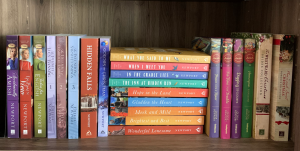I live in Colorado Springs. It’s a gorgeous setting and every day the view outside my door of the Front Range of the Rockies leaves me breathless.
If you’ve kept up with recent news anywhere in the U.S. you’ve no doubt heard that a major fire broke out last week in an area called Black Forest, just a few miles from here. Within a matter of hours it became the worst fire catastrophe in the history of the state of Colorado.
And that is no small feat, considering that last year’s Waldo Canyon fire roared out of a largely recreational area, jumped a ridge against all odds, bellowed down into the west side of town, and gobbled up 349 homes.
Virtually everyone in town knew someone who was evacuated. We stared at television screens for days, hardly able to believe the reports and images. Wildfires in Colorado are not so unusual, unfortunately, but generally they stay out of the city limits of, well, cities. Could this really be happening? We were stunned. Utterly.
And it’s not an experience you forget easily.
Last week, less than a year after Waldo Canyon, at the onset of Black Forest memories were still fresh. As I write, this year’s count is 480 homes lost.
Neither fire immediately threatened my home. Neither fire caused me to have to leave my home wondering if it would be there when I returned. And for that I am grateful even as I grieve the losses of so many families.
This year I did not watch as much news coverage. And do you know why? Because as soon as I heard the news of the fire—from my son who had seen the plume from his workplace—every emotion from last summer rushed through me, body and spirit. Over the last few days I’ve been pondering the power of emotional memories. We do not always remember the facts of what happened, but we are much more likely to remember how the events made us feel. As we later tell stories of hurt and loss, on whatever scale, we may get the facts wrong or scramble the chronology. But none of that matters, because the real importance of the experience is what we felt.
This is true of traumatic experiences, but I suspect it is also true of uplifting experiences. We may not remember the content of a conversation, but we remember the sensation of smiling all the way through. We may not recall the precise order of events, but we remember what a happy day it was. We remember the person who made us feel valued, the quiet chat where we felt understood, the soothing sensation of a perfect day.
In stressful times, this truth is a grace to hang onto. What is happening is not as important as how we feel. And how we feel is most likely rooted in relationship.
So this year’s fire has me asking what is the state of the relationships in my life?
I have people in my life who would be at my side in an instant if my house burned down.
I want to be that person for them, too. And I don’t want to wait until the tragedy is that severe before they know it.





